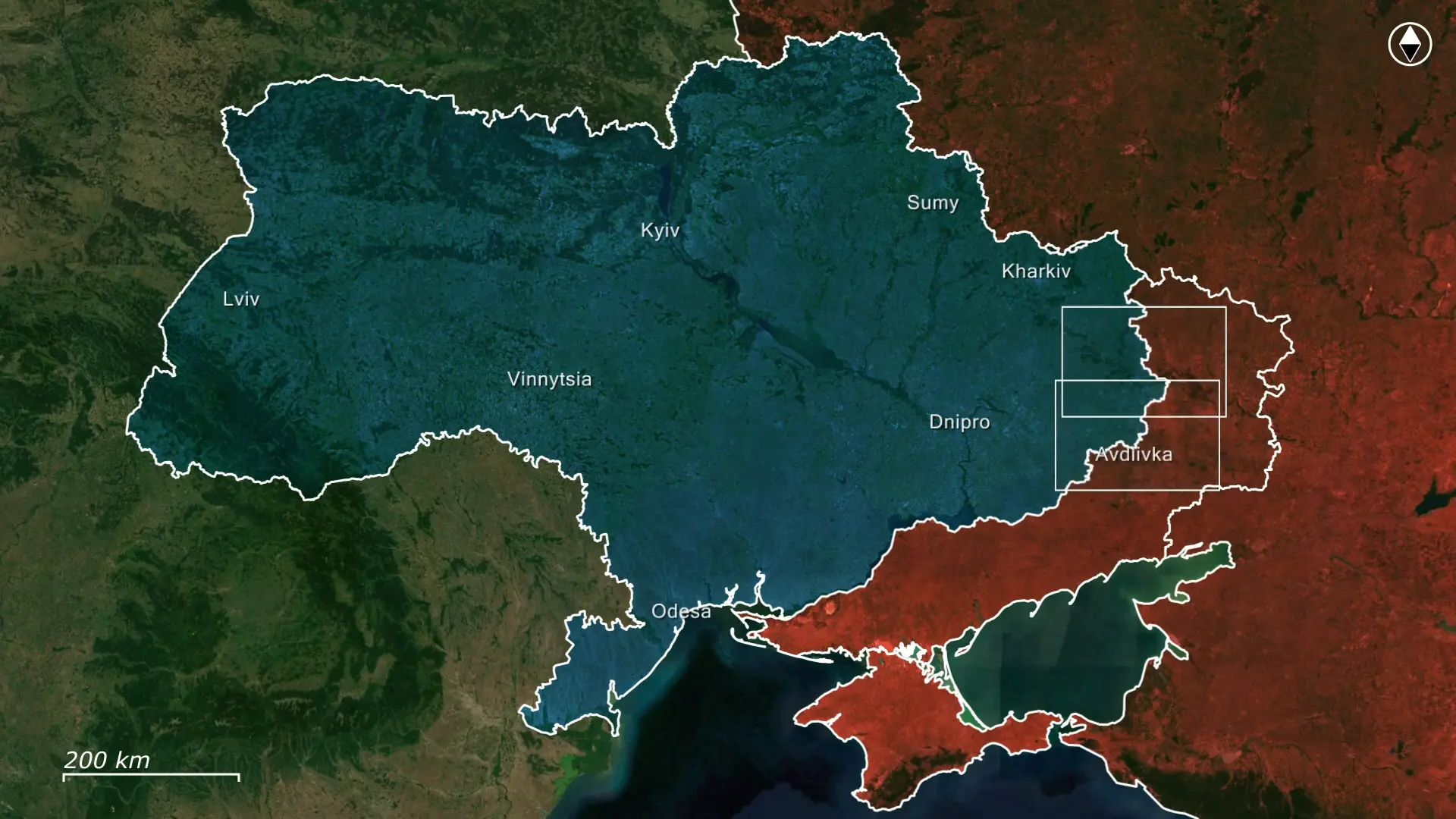Today, we will discuss the catastrophic losses in armored vehicles suffered by Russian forces throughout 2024 at an increasingly unsustainable rate.
Ukrainian forces destroyed or damaged over 3,600 tanks and nearly 9,000 infantry fighting vehicles over the past year, surpassing the total losses Russia sustained in the previous two years of the war. This extraordinary attrition has profoundly impacted Russia’s operational capabilities, forcing its forces to adapt to a diminishing pool of modern equipment and resort to outdated solutions.

The Pokrovsk direction highlights the devastating impact of these losses on Russian operations. Initially, Russian forces relied heavily on mechanized assaults in this sector, deploying tanks and armored vehicles to break Ukrainian defenses. However, the dense Ukrainian defense lines in front of the city, coupled with day and night drone surveillance and quick reaction times, have decimated Russian armored units. By the end of 2024, Russian forces in the Pokrovsk area were severely depleted, with a diminished ability to conduct coordinated mechanized operations.

As losses mounted, Russian commanders began reducing the use of armored vehicles in frontline assaults and started looking for other attack vectors. This shift not only hindered their offensive capabilities but also left infantry units vulnerable, forcing soldiers to advance with minimal protection. Without sufficient armor, Russian forces failed to achieve further progress in this strategically vital area.
How severely the situation around Pokrovsk has deteriorated for Russians can be easily demonstrated if we compare Russian losses of around 1,800 armored vehicles, with one of the greatest battles of World War 2, the battle at El Alamein, where both sides lost around 1,500 vehicles combined.

As the losses of armored vehicles continue to rise, Russia has turned to increasingly desperate solutions to compensate. Reports indicate that Russian forces have begun employing electric scooters, motorcycles, and all-terrain vehicles during assaults. While these alternatives may provide mobility, they offer no protection for troops and leave them highly vulnerable to Ukrainian fire. The shift from mechanized assaults to infantry-based tactics and unarmored transport underscores the desperation within the Russian military. Without the protection of armored vehicles, Russian personnel face significantly higher casualty rates, further eroding the effectiveness of their frontline units, as seen in this video showing a Russian assault group of regular trucks and motorcycles traveling to the frontline.



Another important part of this crisis lies in the inability of Russia’s defense industrial base to replace lost equipment at a sustainable rate. Despite efforts to ramp up production, Russia can only produce and modernize between 250 and 300 tanks per year. This output is vastly inadequate to compensate for the nearly 3,600 tanks lost in 2024 alone.



Compounding this issue is the reliance on aging Soviet-era stockpiles. While Russia has significant reserves of older tanks like the T-62 and T55, many of these vehicles are degraded from decades of storage and exposure to the elements. Furthermore, Russians have already taken those in better condition first, so the remaining will likely be completely rusted. Adapting older models into alternative roles, such as converting T-72 tanks into makeshift armored personnel carriers, has yielded mixed results. These retrofitted vehicles lack the capabilities of modern equipment and are ill-suited to the demands of contemporary warfare.



The shortage of armored vehicles has fundamentally altered the dynamics of Russian operations. Mechanized assaults, once a cornerstone of Russian strategy, are now rare. Instead, infantry units are forced into high-casualty assaults with minimal support, relying on antiquated equipment and improvised solutions. The inability to field sufficient armored support has also hindered Russia's ability to launch effective offensives, pumping up the statistics with currently each square kilometer of captured land costing the Russians 0.6 destroyed tanks, 1.3 destroyed armored vehicles, and one-hundred-fifty-four dead soldiers.

Overall, the extraordinary rate of armored vehicle losses in 2024 has exposed deep vulnerabilities in the Russian military. As Ukraine continues to exploit these weaknesses, Russian forces face a growing capability crisis. The reliance on outdated Soviet stockpiles and improvised solutions signals declining military capabilities, as they struggle to keep up the desired tempo of operations in the face of relentless Ukrainian pressure. If current trends persist, Russia’s ability to wage effective mechanized warfare may collapse entirely, with profound implications for the course of the war.










.jpg)








Comments